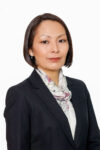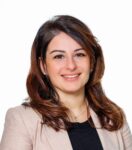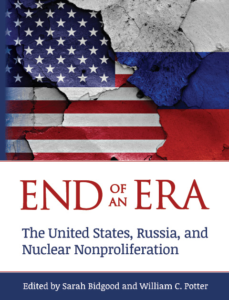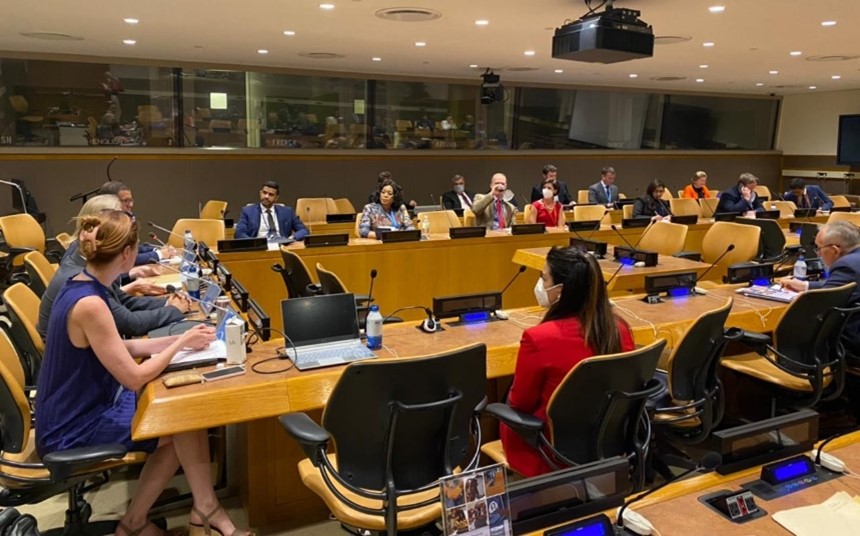
The Tenth Review Conference of the Parties to the Treaty on the Non-Proliferation of Nuclear Weapons (NPT) is taking place from 1 to 26 August 2022 in New York City, attracting hundreds of diplomats and civil society representatives. VCDNP experts contributed through various side events and their participation as advisors in national delegations.
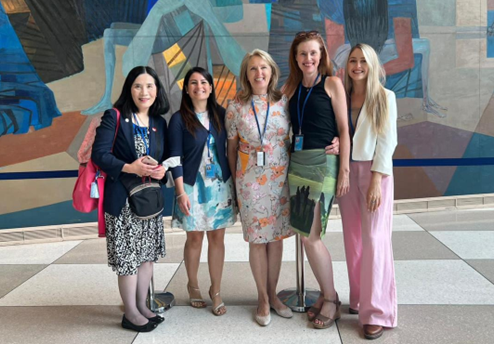
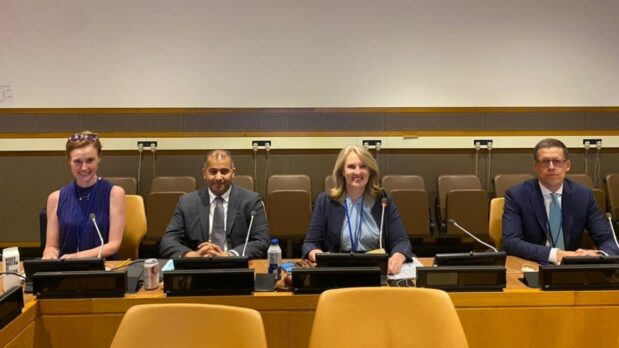
On 4 August 2022, the VCDNP and the Permanent Mission of UAE to the International Atomic Energy Agency (IAEA) organised a side event focusing on the third pillar of the NPT: peaceful uses of nuclear science and technology. Moderated by VCDNP Executive Director Elena K Sokova, the panel featured Ambassador Hamad Alkaabi, Permanent Representative of the UAE to the IAEA, Nuno Luzio, External Relations Officer at the IAEA, and Ingrid Kirsten, VCDNP Senior Research Associate.
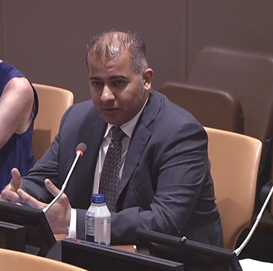
In his remarks, Ambassador Alkaabi, a member of the VCDNP Task Force on Peaceful Uses, underlined the profound impact of peaceful uses on development and highlighted the lack of awareness among the public about the linkage between peaceful uses, the NPT, and sustainable development. This lack of awareness particularly prevents developing States from fully benefiting from peaceful uses.
“We need to look for opportunities to raise awareness, to educate people on what type of peaceful uses are out there.”
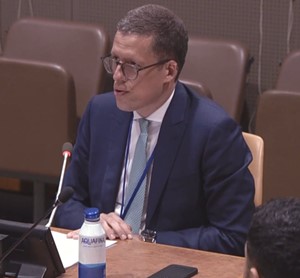
Nuno Luzio briefed the participants on the role the IAEA plays in preserving and building necessary capacity and expertise to improve access to the peaceful application of particularly non-power applications of nuclear technology within a strong and sustainable global nuclear safety and security framework.
"No other organisation has such a repository of knowledge on peaceful applications.”
He further echoed the argument that a major barrier to expanding peaceful uses remains low awareness of their impact and public perception of nuclear technology. Mr Luzio also pointed out the crucial connection between peaceful uses and the development agenda. He emphasised that while the IAEA is not a development agency, much of its support to its Member States can be considered development assistance and is eligible to receive official development assistance (ODA).
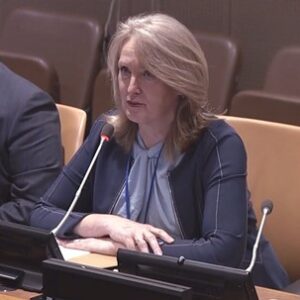
Elena K Sokova also emphasized the vital linkage between development and peaceful applications of nuclear technology.
“Peaceful nuclear uses can be much better and wider utilised. The contribution to the Sustainable Development Goals needs to be better reflected in the work of the NPT.”
She provided a brief overview of the Report of the VCDNP Task Force on Peaceful Uses that contains recommendations on: awareness raising; improving and expanding partnerships; integrating safety, security and safeguards; and sustainability and access to nuclear technology.
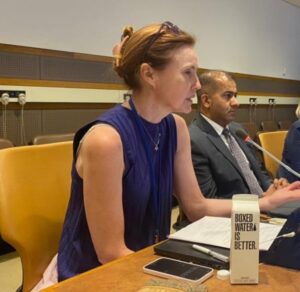
In her remarks, Ingrid Kirsten discussed the recommendations in depth, arguing for the need to bring all stakeholders to the table to discuss peaceful uses, especially considering that decisions on nuclear matters are often made by defence or energy officials without the involvement of development experts.
Ms Kirsten also highlighted the need for greater investment in capacity building for peaceful uses as well as furthering access to technology.
“We need to ensure that this technology is accessible and usable by all developing countries.”
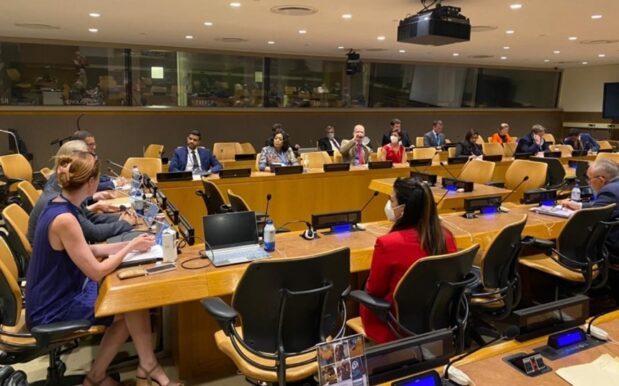
Ms Sokova concluded the panel by presenting VCDNP Task Force’s concrete recommendations for the Tenth NPT Review Conference, proposing:
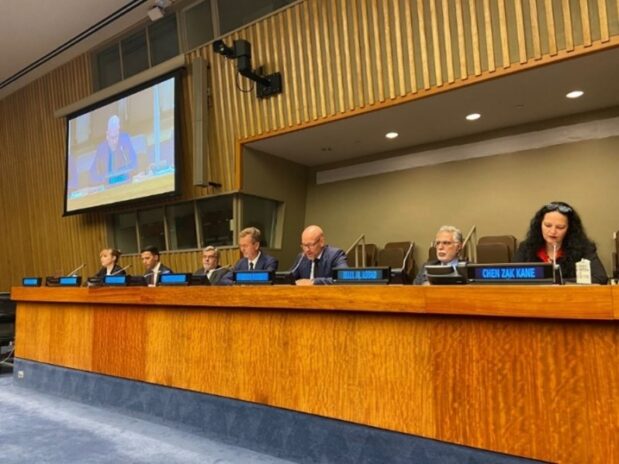
On 10 August, Dr Hanna Notte spoke at a side event organised by UNIDIR, at the Tenth NPT Review Conference in New York. The event focused on “Narratives on the Middle East WMD-Free Zone: Historical Accounts, Drivers, and Themes”.
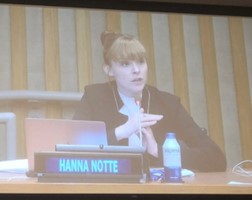
Dr Notte reflected on the legacy of the Arms Control and Regional Security (ACRS) Working Group, which was formed as an outcome of the 1991 Madrid Conference. She discussed what specific lessons can be drawn from ACRS for the current UN General Assembly process toward the establishment of a Middle East Zone free of nuclear and other weapons of mass destruction.
The event, moderated by UNIDIR Project Head Dr Chen Zak Kane, also featured Ambassador Wael Al Assad, UNIDIR Senior Fellow and former Ambassador of the League of Arab States to Austria, Thomas Markram, Deputy High Representative for Disarmament Affairs and UNODA Director and Dr Ali Vaez, Iran Project Director and Senior Adviser to the President, Crisis Group.
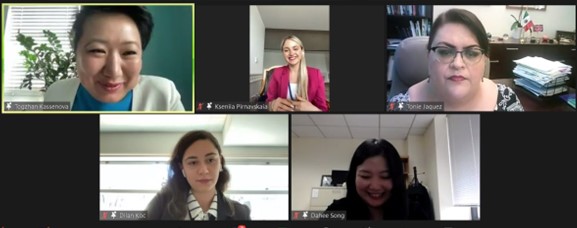
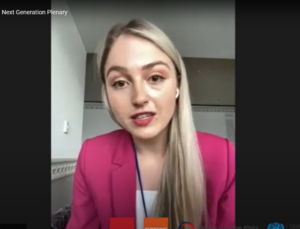
On 4 August, Kseniia Pirnavskaia spoke at a virtual side event held by Republic of Korea, the UNODA and BASIC.
The event aimed at enabling dialogue between senior and young experts on the NPT issues, particularly focusing on the disarmament agenda and the role of youth. When elaborating on the reasons why the inclusion of next-generation experts is important in the disarmament fora, Ms Pirnavskaia emphasised creativity, freedom from prejudice, and teamwork as a powerful added value for the nuclear policy community. Ms Pirnavskaia encouraged young people to experiment with the established norms and enact change by bringing new perspectives.
Moderated by Dr Togzhan Kassenova, a non-resident fellow at the Carnegie Endowment for International Peace, the panel also included Tonie Jáquez, Counsellor and Political Coordinator at the Mission of Mexico to the UN, Dahee Song, First Secretary at the Permanent Representative of the ROK to the UN and Dilan E Koç, UN Youth Champion for Disarmament and graduate student at Yale University.

